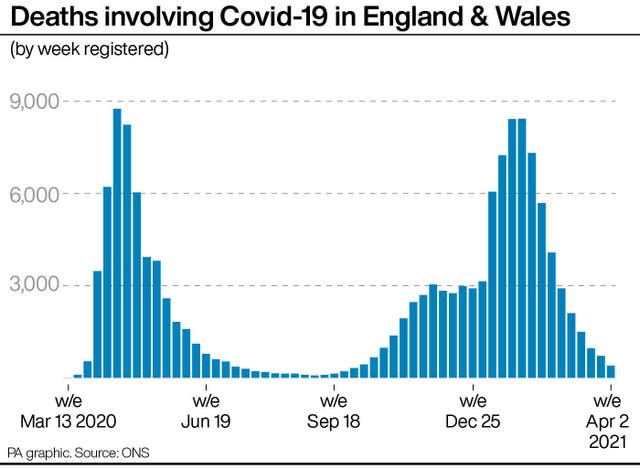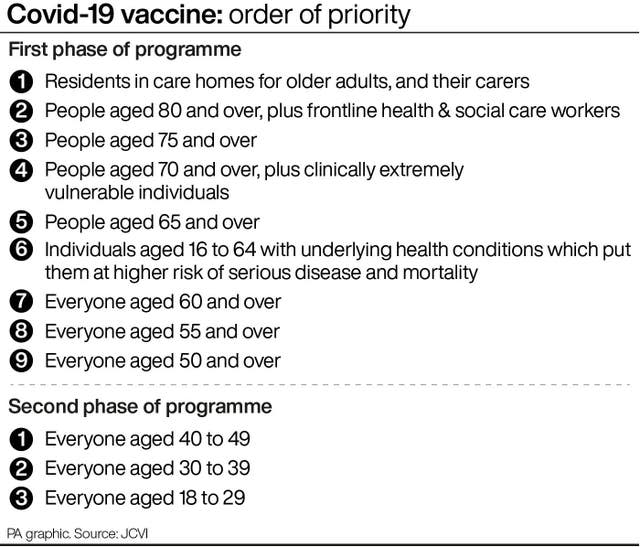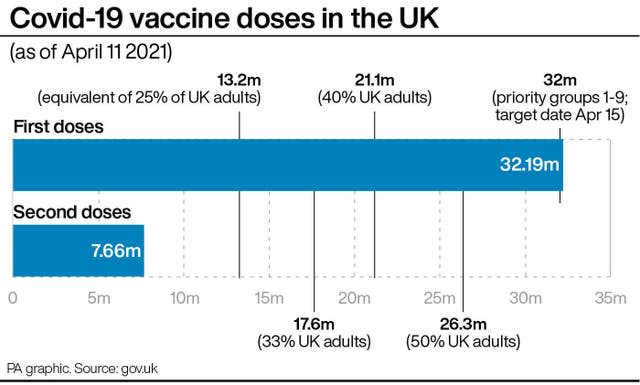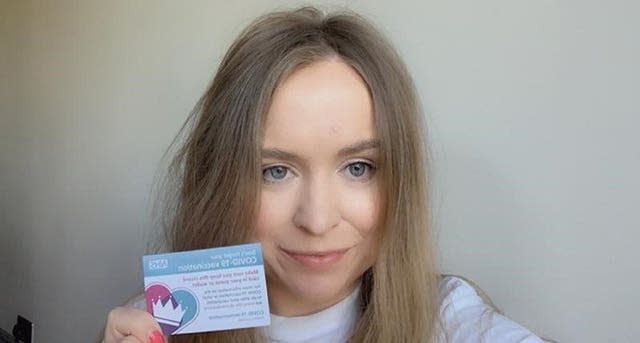Easing lockdown restrictions will inevitably lead to more deaths – Johnson
Boris Johnson has warned that the easing of lockdown restrictions will “inevitably” lead to more infections and deaths as the NHS moved to the next stage of vaccine rollout by inviting people aged between 45 and 50 to book an appointment.
The Prime Minister urged people to continue to “exercise restraint” as beer gardens were packed and shoppers flocked to high streets after the latest round of the Government’s coronavirus restrictions were lifted in England on Monday.
Mr Johnson said that although vaccines had helped, lockdown restrictions had done “the bulk of the work” in reducing Covid-19 infections.
The start of “Phase 2” of the vaccination programme – which involves offering vaccines to healthy adults aged under 50 – came after the Government met its target of offering the vaccine to all those in the highest risk groups.
Speaking in Downing Street, Mr Johnson said: “It’s great that we have managed to achieve the target of getting everyone in the one to nine (priority) groups vaccinated by the deadline, by the timetable – a little bit ahead actually, 32 million people now have got their first dose, which is terrific.

“We are going now to the 45-49 group, they are being asked to come forward.”
But he added: “Of course the vaccination programme has helped, but the bulk of the work in reducing the disease has been done by the lockdown.
“So, as we unlock, the result will inevitably be that we will see more infection, sadly we will see more hospitalisation and deaths.
“People have just got to understand that.”

Mr Johnson said there were no plans at present to change the road map out of lockdown. The next “waymarks” on England’s plan to ease restrictions are due on May 17 and June 21.
“But it is very, very important that, if we are to get there in the way that we all want, people continue to be cautious and they continue to exercise restraint and just do the basic things to stop the spread of the virus – washing your hands, giving people plenty of space, doing things in fresh air,” he added.
Mr Johnson urged the eligible people to come forward and get their jab when offered, adding that he remains “very confident” about vaccine supplies despite previous concerns over constraints.
When The NHS’s online booking system opened up to include people over the age of 45 on Tuesday, the website crashed for many.
There are an estimated 3.7 million people in England aged 45 to 49.
The NHS has hit its vaccination target, with 19 out of 20 of those most at risk of the virus having now received their first dose of the COVID-19 vaccine.
If you've not had it yet and you're in an eligible group, you can still get your free #NHSCOVIDVaccine. pic.twitter.com/zhUyEUnwi6
— NHS England and NHS Improvement (@NHSEngland) April 12, 2021
The NHS in England said 19 out of 20 of those most at risk of the virus have now received their first dose of a Covid-19 vaccine.
An estimated 27 million people in England are in the top nine priority groups, so it is likely around 25.7 million have received their first Covid-19 jab.
But this suggests around 1.3 million have not had the jab.

One vaccination expert said that it was “vitally important” to vaccinate “the last few per cent”, or they could get infected and end up in hospital.
Professor Jeremy Brown, from University College London Hospitals and a member of the Joint Committee of Vaccination and Immunisation (JCVI), told the Today programme: “The problem here is that 5-10% have not been vaccinated.
“When the virus re-circulates through the community they could get infected and end up in hospital.
“So it’s vitally important that we get that last few per cent.”
Elsewhere:
– People in England have begun to receive the Moderna Covid-19 vaccine.
– The number of registered deaths involving coronavirus in England and Wales has fallen to the lowest level in six months. There were 400 deaths registered in the week ending April 2 where Covid-19 was mentioned on the death certificate – the lowest since October 2, according to the Office for National Statistics.
– Surge testing has begun in the boroughs of Lambeth and Wandsworth in south London following the identification of a number of cases of a variant of the virus first found in South Africa.
– The US has recommended a “pause” for the single-dose Johnson & Johnson Covid-19 vaccine to investigate clotting reports.
– Nicola Sturgeon announced that coronavirus travel restrictions in Scotland are to be eased from Friday, and six adults from up to six households will be able to meet up outside.

It comes as a 28-year-old solicitor became one of the first people in England to receive the Moderna vaccine as part of the mass vaccination programme when she got her jab at Sheffield Arena, shortly after 9am.
Emily Sanderson, who has an underlying health condition, was due to receive the AstraZeneca vaccine, but it was changed to Moderna, the NHS said.
UK regulators said last week that people under the age of 30 should be offered an alternative to the AstraZeneca vaccine, saying there was a possible link between the jab and “extremely rare” blood clots.
Meanwhile, Ireland became the latest country to restrict the use of the AstraZeneca vaccine, saying it should not be given to people under the age of 60, amid concerns over possible links to rare blood clotting events.
In all, the Government said almost 40 million doses of the Pfizer and AstraZeneca vaccines have been delivered since the rollout began in the UK in December, including 32 million first jabs and more than seven million second doses.
Throughout the current month, the health service has prioritised second doses of the Pfizer and AstraZeneca vaccines with a record 475,230 people receiving their second jab on Saturday.
